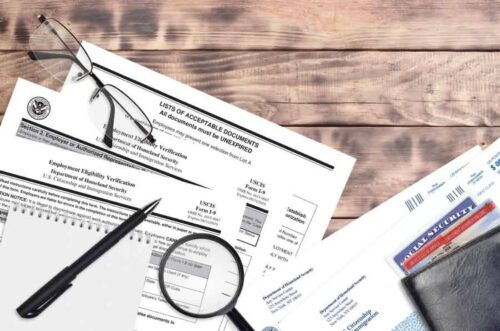Description
Continuing Education Credits:
- HRCI – 2 HR(General) Credits
- SHRM – 2 PDC’s
Schedule: 3:00 AM – 5:00 PM Eastern Time
As workplaces become more diverse and inclusive, it is essential for HR professionals, managers, and supervisors to recognize the importance of accommodating employees with sensitivities to fragrances and other allergens. Fragrance sensitivity and allergies can severely affect employee well-being, morale, and productivity, and addressing these concerns proactively fosters a healthier, more inclusive work environment. This training program equips attendees with the necessary knowledge and skills to identify, accommodate, and manage workplace allergy-related issues, reducing potential liability and promoting employee satisfaction.
Additionally, the growing awareness of chemical sensitivities has led to legal implications under the Americans with Disabilities Act (ADA) and other workplace accommodation laws. Failure to accommodate these sensitivities may result in non-compliance with federal and state laws, making this training critical for understanding the legal obligations of HR professionals. Attending this course will help HR leaders stay compliant while providing a practical guide to fostering a safe and inclusive work environment for all employees.
By attending this training, participants will not only gain an in-depth understanding of how to create an accommodating workplace but also learn how to handle sensitive situations with confidence. This course offers a comprehensive framework to implement best practices, respond to accommodation requests, and navigate challenging scenarios, ensuring all employees can perform their duties without health-related hindrances.
Program Features
- Expert Trainer: Led by an experienced HR professional with extensive legal expertise.
- Comprehensive Coverage: Detailed exploration of all essential HR topics and legal compliance requirements.
- Interactive Format: Engaging training with practical examples, case studies, and real-world scenarios.
- Assessment Tools: Pre- and post-tests to evaluate learning outcomes and measure the effectiveness of the program.
- Networking Opportunities: Chance to interact with peers and other HR professionals.
- Q&A Session: Dedicated time for participants to ask questions and clarify doubts.
- Certificate of Completion: Participants will receive a certificate upon successful completion of the program.
- Supportive Learning Environment: Encourages open discussions and sharing of best practices.
- Customizable Content: Tailored examples and case studies to reflect the specific needs of participants.
Why Attend This Training Program
- Understand the legal requirements and compliance obligations regarding fragrance sensitivities under the ADA.
- Identify common allergens in the workplace, including fragrances, cleaning products, and personal care items.
- Learn effective strategies to accommodate employees with fragrance sensitivities and allergies.
- Develop a workplace fragrance-free policy that balances the needs of all employees.
- Handle interactive processes for allergy accommodation with confidence and empathy.
- Minimize the potential legal risks of not addressing employee allergies in the workplace.
- Explore practical case studies of fragrance sensitivity accommodation.
- Train managers and supervisors to recognize and respond to fragrance sensitivity concerns.
- Learn how to conduct a workplace assessment for allergens and chemical sensitivities.
- Implement preventive measures to reduce exposure to allergens in the workplace.
Topics Covered
- Overview of Fragrance Sensitivities and Allergies in the Workplace
- Understanding the ADA and Legal Requirements
- Identifying Common Allergens in the Workplace
- Assessing the Workplace for Potential Allergens
- Responding to Employee Accommodation Requests
- Engaging in the Interactive Process: A Step-by-Step Guide
- Creating a Fragrance-Free Policy
- Practical Strategies for Reducing Exposure to Allergens
- Effective Communication with Affected Employees
- Managing Employee Reactions to Allergy Accommodations
- Developing a Culture of Inclusion and Accommodation
- Case Studies: Successful Allergy Accommodations
- Addressing Common Myths and Misunderstandings About Fragrance Sensitivities
- Preventing Discrimination and Retaliation in Allergy Accommodation Cases
- Training Managers and Supervisors on Handling Allergies
- Ensuring Legal Compliance and Avoiding Lawsuits
- Understanding the Role of Occupational Health and Safety
- Managing Remote and Hybrid Workplaces with Fragrance Sensitivities
- Dealing with Perfumes, Lotions, and Other Personal Products
- Handling Allergies to Cleaning Products and Air Fresheners
- Working with Vendors and Contractors on Fragrance Policies
- Building Awareness of Hidden Allergens in the Workplace
- Monitoring and Adjusting Accommodation Plans Over Time
- Managing Pets and Animal Allergies in the Workplace
- Promoting a Healthy and Safe Work Environment for All Employees
- Documenting the Accommodation Process Effectively
- Handling Conflicts Between Employees Regarding Fragrance Sensitivities
- Creating a Supportive Environment for Employees with Severe Allergies
- Collaborating with Legal Counsel and External Advisors
- Assessing the ROI of Accommodation Programs
Target Audience
This training program is tailored for a wide range of professionals who are responsible for creating and maintaining safe, compliant, and inclusive workplace environments. It is particularly beneficial for those who oversee employee relations, workplace accommodations, and safety compliance. The following groups will find the content of this program invaluable:
- HR Professionals:
- HR Generalists and Specialists tasked with managing employee accommodations, ADA compliance, and workplace policies.
- HR Managers responsible for creating and enforcing policies that ensure the well-being of all employees, especially those with fragrance sensitivities and allergies.
- HR Business Partners who advise managers on accommodation strategies and maintaining employee satisfaction.
- Managers and Supervisors:
- Frontline managers who interact directly with employees and may receive accommodation requests related to fragrance sensitivities and allergies.
- Team leaders responsible for managing diverse teams where allergens such as fragrances, lotions, cleaning products, or even pet allergens may impact team dynamics and individual productivity.
- Department heads who need to ensure that their department complies with corporate accommodation policies and fosters a respectful, inclusive work environment.
- Occupational Health and Safety Professionals:
- Health and safety officers responsible for assessing workplace environments and mitigating risks associated with allergens and fragrance sensitivities.
- EHS (Environmental Health and Safety) managers who oversee workplace wellness initiatives and implement allergen control measures.
- Compliance and Legal Professionals:
- Legal counsel specializing in workplace accommodation, ADA, and other employment law issues who must ensure the company’s policies and practices are legally compliant.
- Compliance officers tasked with ensuring organizational adherence to federal, state, and local laws related to workplace accommodations and employee health and safety.
- Diversity, Equity, and Inclusion (DEI) Leaders:
- DEI officers responsible for ensuring all employees, regardless of their health conditions, have equal access to safe working conditions and are not excluded or marginalized due to fragrance sensitivities or allergies.
- DEI professionals involved in creating inclusive workplace cultures where employees with health conditions receive appropriate accommodations.
- Facilities Managers:
- Office and facilities managers who handle workplace logistics, cleaning schedules, and air quality control, ensuring the physical environment minimizes allergen exposure.
- Building operations managers who need to collaborate with cleaning services and vendors to ensure they use fragrance-free products and maintain a safe workplace environment.
- Industry-Specific Professionals:
- Healthcare professionals, including hospital administrators and clinic managers, who work in environments where allergens and chemicals can be highly impactful on both staff and patients.
- Hospitality managers overseeing hotels, restaurants, and event spaces where guest and employee fragrance sensitivities must be managed.
- Education administrators who manage school or university environments and must accommodate students, teachers, and staff with fragrance and other allergies.
- Remote and Hybrid Workplace Leaders:
- Leaders responsible for managing remote and hybrid employees who may face unique challenges related to fragrance sensitivities in home office environments.
- IT and Operations leaders managing remote teams who need guidance on how to accommodate fragrance sensitivities in virtual workspaces and company-provided tools.
- Union Representatives and Labor Relations Professionals:
- Union leaders who advocate for workers’ rights, including ensuring that employees with allergies and sensitivities are not unfairly discriminated against in the workplace.
- Labor relations professionals involved in negotiations and workplace disputes regarding accommodation for employees with fragrance sensitivities.
- Small Business Owners and Entrepreneurs:
- Small business owners and entrepreneurs who may not have dedicated HR departments but still need to understand legal obligations and best practices for accommodating employees with fragrance sensitivities.
- Startup founders who are building new company cultures and want to ensure inclusivity from the ground up.
- Public Sector Employees:
- Government employees responsible for ensuring compliance with federal and state workplace safety regulations.
- Public sector HR professionals working in offices, schools, and healthcare institutions where fragrances and allergens can affect a large, diverse workforce.
Agenda
3:00 PM – 3:15 PM
- Welcome and Introduction
- Importance of Managing Fragrance Sensitivities and Allergies
3:15 PM – 3:30 PM
- Understanding Fragrance Sensitivities and Allergies: Overview and Common Triggers
- ADA Compliance and Legal Obligations
3:30 AM – 3:45 PM
- Interactive Process for Accommodating Allergies
- Case Study: Real-World Allergy Accommodations
3:45 PM – 4:00 PM
- Developing a Fragrance-Free Workplace Policy
- How to Assess and Reduce Allergen Exposure in the Workplace
4:00 PM – 4:15 PM
- Managing Employee Reactions to Allergy Accommodations
- Legal Risks and Preventing Discrimination
4:15 PM – 4:30 PM
- Training Managers and Supervisors: Best Practices for Accommodation
- Strategies for Remote and Hybrid Workplaces
4:30 PM – 4:45 PM
- Handling Personal Products (Perfume, Lotions) and Cleaning Products
- Managing Conflicts and Promoting a Healthy Workplace Culture
4:45 PM – 5:00 PM
- Q&A Session
- Closing Remarks: The Future of Inclusive Workplaces






Reviews
There are no reviews yet.